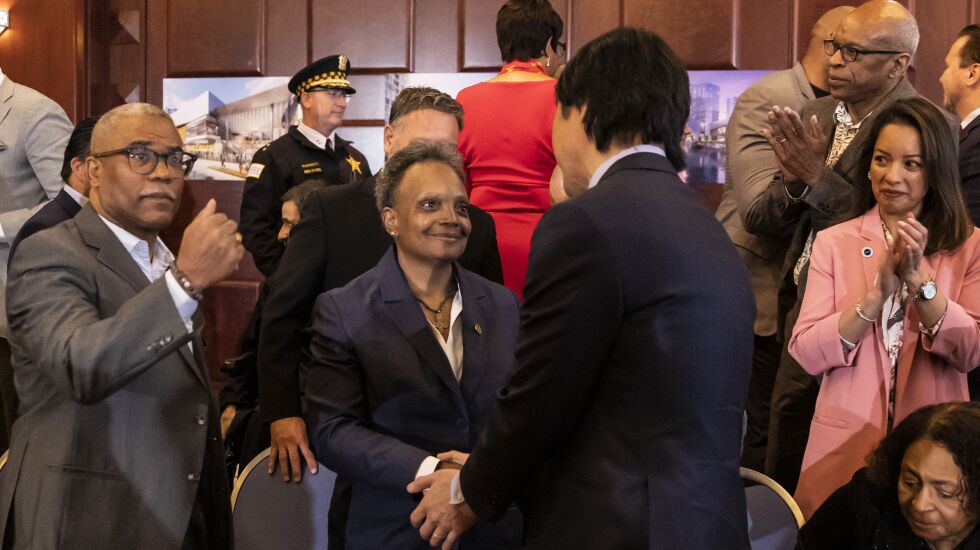
Odds are you’ve never heard of Nomura Securities International. But the consulting firm played a key role behind the scenes in what’s likely to be one of the most consequential decisions Lori Lightfoot ever made as mayor — the selection of Bally’s to own and operate Chicago’s long-awaited casino.
City Hall hired Nomura to solicit casino operators to make their pitches to Lightfoot for the Chicago casino deal and to evaluate their proposals. Bally’s was among those Nomura solicited.
But even as Bally’s was successfully seeking Lightfoot’s blessing, it also was working on a separate, $2.6 billion deal. That was to buy an online British gaming company called Gamesys. As part of that deal, Bally’s would pay off Gamesys’s lenders, according to documents Bally’s filed with the U.S. Securities and Exchange Commission.
Among those creditors was Nomura — the consulting firm that brought in Bally’s to bid for Chicago’s casino, a Chicago Sun-Times investigation has found.
Bypassing the city’s normal procurement process, Nomura worked behind the scenes with Lightfoot’s staff for at least nine months before it signed a $1.5 million deal with City Hall for its work to bring Chicago the long-sought casino, the Sun-Times found.
By the time that contract was signed, the casino bidding process already had been completed.
Lightfoot and her former top aides won’t say whether they knew about Nomura’s financial tie to Bally’s through the Gamesys deal. But they say Nomura “held no substantive role” in choosing Bally’s plan over those of other bidders to build the $1.7 billion casino complex on the Chicago River.
A Nomura spokesman says that, although the company solicited Bally’s to bid for the Chicago casino, it didn’t make any recommendations to Lightfoot’s administration about which casino operator should land the coveted deal.
A Bally’s spokeswoman says Nomura “was one of several lenders of JPJ/Gamesys prior to their acquisition by Bally’s. We would like to state that Bally’s has never borrowed funds from Nomura Holdings. There is no existing relationship between Bally’s and Nomura Holdings.”
Bally’s bought Gamesys for $2.6 billion, including $2.08 billion in cash plus 9,773,537 shares of stock, according to documents filed with the SEC. Gamesys reported that, under the deal, the company’s lenders Macquaire Corp. and Nomura International would be repaid a total of 175 million British pounds, the equivalent of about $220 million.
It’s unclear how much money either lender might have been repaid.
A Nomura spokesman says only that the debt was “extinguished” with the Bally’s purchase of Gamesys.
Bally’s is now awaiting final approval from the Illinois Gaming Board to operate a temporary casino that’s under construction at Medinah Temple in River North and eventually a permanent gambling complex on the site of what’s now the Chicago Tribune’s printing plant along the Chicago River.
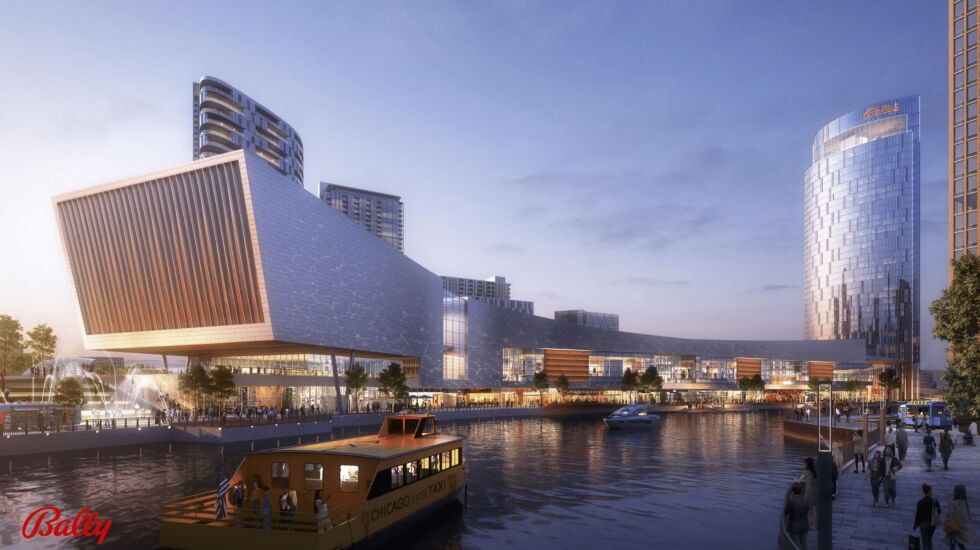
Officials with the gaming board, whose members are appointed by Gov. J.B. Pritzker, won’t comment on the financial connection between Bally’s and Nomura.
The Chicago casino selection process was shrouded in secrecy under Lightfoot, who rejected two more established casino operators when she announced in May 2022 that she’d chosen Bally’s.
Also unclear is how Medinah Temple was chosen as the site of the temporary casino while Bally’s builds the permanent facility. A source involved in the process has told the Sun-Times that Lightfoot encouraged Bally’s to choose Medinah Temple — which a spokesman denied, saying earlier this year that Lightfoot “had no involvement in the site selection of the temporary casino.”
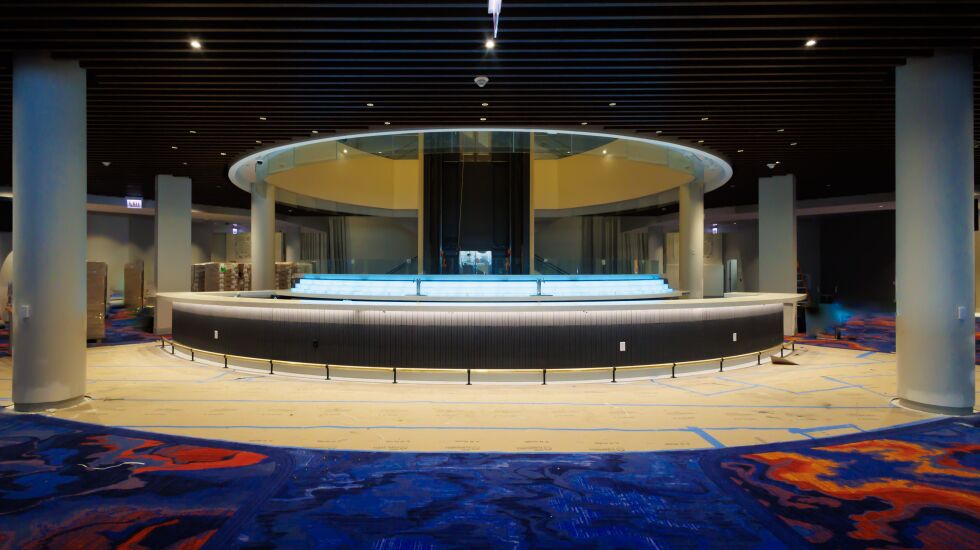
Medinah Temple is owned by Chicago developer Albert M. Friedman, who was the landlord for Lightfoot’s campaign office and has been a campaign contributor, giving her $11,000 since 2019.
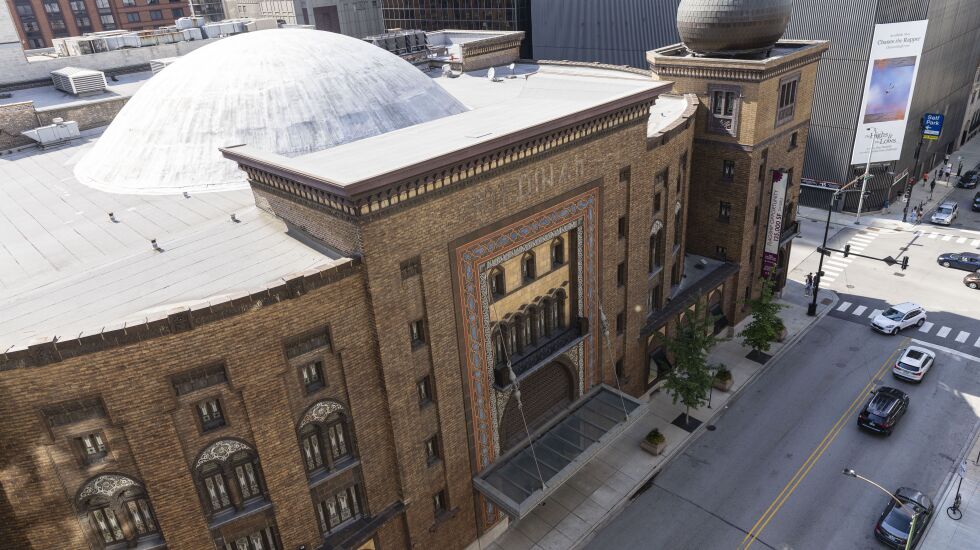
In February — weeks before Lightfoot’s bid for a second term came crashing down with a third-place finish in the mayoral primary, leaving her out of the April runoff that saw Brandon Johnson elected mayor — the Sun-Times reported that Lightfoot’s campaign fund’s new chairperson was the daughter of a contractor slated to help oversee construction of Bally’s casino.
Other companies and executives who stood to gain from the casino construction also gave money to Lightfoot’s campaign, records show.
In handing Bally’s the casino deal, Lightfoot bypassed the Chicago City Council Special Committee on the Casino, angering some council members. The committee ended up meeting just once before Lightfoot picked Bally’s.
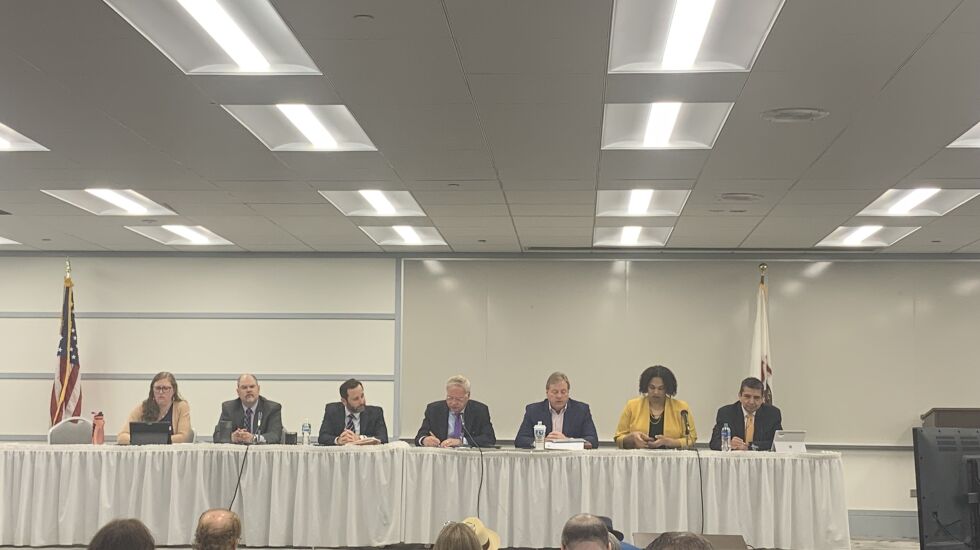
Unlike competing bidders affiliated with Hard Rock Casino and Rivers Casino, Bally’s initially promised the city an upfront payment of $25 million, then raised that to $40 million. And City Hall projected it would bring in more taxes than the other bidders. That’s money Lightfoot wanted to use to bolster underfunded city pension funds and which she said would avoid a property tax increase.
The casino — which is set to include 3,400 gambling slots, 170 table games, a hotel and an entertainment complex — is projected to bring the city more than $190 million in taxes a year, though some City Council members have questioned the validity of that projection.







